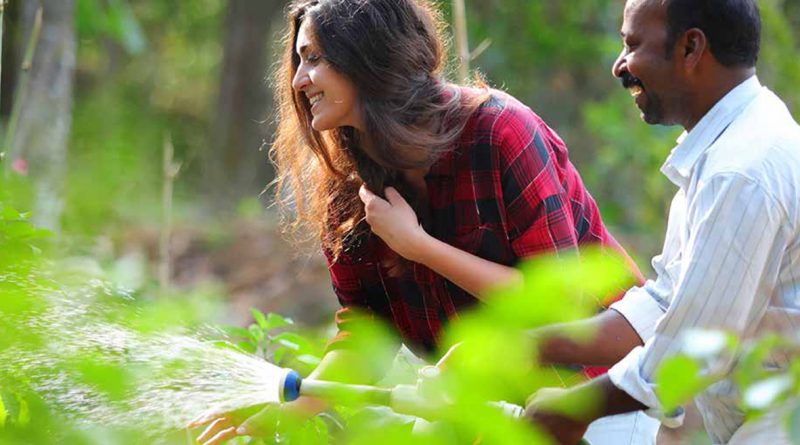The Blooming of Farm Tourism
-Dr. Venugopal C.K.
Professor, KITTS
-R.Babu Assistant
Professor, KITTS
Venturing beyond conventional tourism, the emergence of farm tourism in Kerala paints a unique picture of rural life intertwined with sustainable travel experiences. This dynamic synergy between agriculture and tourism is shaping a distinctive narrative that celebrates both tradition and innovation Farm tourism usually involves a) Accommodation b) Farm visits c) Farm shops visits d) Guided walks and e) Farm activities. Using of indigenous methods and organic farming are widely accepted and are popular among tourists. Many destinations like Kanthaloor located near Munnar have gone a long way in developing farm tourism. Nelliyampathi, the beautiful hill destination of Palakkad is another shining example where farm tourism has been successfully applied. Some of the benefits of farm tourism are a) In spite of all modernity man is an essential part of nature. Farm tourism gives man a unique opportunity of self-realization where the concept of ourselves being part of nature is realized b) This is a group activity that help builds bondage c) Also people from various walks of life get together making this a unique experience.Agri-Tourism has the capacity for creating income opportunity for farmers and shows new path for rural development.
Scope of Farm Tourism in Kerala
Agriculture is a way of life in Kerala from time immemorial. Even in this cyber age a large number of youngsters not to speak of the traditional farmers have embraced farming not only for a living but as a passion. In districts like Wyanad, Idukki, Palakkad, Pathanamthitta and Kottayam the farming community occupies a unique place in society. Kuttanad the rice bowl of Kerala in spite of the repeated floods with constant support from the Government is a shining example of the farming culture of Kerala. Many tourism destinations in Kerala are intrinsically linked to the unique crops grown in there. A classic example is Munnar where tea plantations on the slopes of its rolling hills are its Unique Selling Proposition (USP).
Similar is the case of Wyanad where spices and the unique produces from bamboo rule the roost. Western Ghats that runs across the breadth of Kerala houses a numerous eco destinations where flora and fauna are the USP. If the uniqueness of a particular destination is linked to farm tourism without disturbing nature’s balance, this will be beneficial to the local community and the state as a whole in terms of livelihood and income. While implementing farm tourism the following thing should be kept in mind a) It should not damage nature at the same time should generate revenue b) Local community should be benefitted c) A part of the revenue generated should go to persevering the ecological balance of the area. It should provide a learning experience to tourists in terms of heritage, culture, farm produces, cuisine which should basically reflect the way of life of the local community.
Packages and Tours offered in Farm Tourism
Depending on the strengths of the destination, packages can be designed. In addition to the essential components of a typical farm visit the following options can be considered depending on the availability of resources. a) Trekking b) boating and c) fishing are some of the popular and sure to succeed inclusions. Angling for example is a major source of revenue for the operator at the same time a source of relaxation and enjoyment to the visitor. Some home stay owners help visitors cook food using traditional methods. In addition to this interaction with domestic animals such as cows, goats and sheep are other ways of experiencing village life. In addition to this ethnic art forms and cultural shows are arranged by enterprising entrepreneurs. The key to success as a farm tourism operator lies in the passion for farming coupled with depth knowledge about traditional practices.
Birding is another major form of tourism activity that is gaining popularity in Kerala that can be linked to farm tourism. Marayoor, a scenic village located near Munnar is classic example where village life experiences have been converted in packages. The traditional recipes made by local community are a great hit among tourists. Trained by Kerala Institute of Tourism and Travel Studies (KITTS), Women self-help groups formed after attending the skill development programme conducted by the institute have started making livelihood. Farm tourism is gradually evolving as a way of life in Kerala so much so that local community participation is increasing sharply. Nestled between the Western Ghats and the Arabian Sea, this tiny strip of land endowed abundantly with natural attractions is ideally poised to become a homestay destination. Indeed with ample support from the Government of Kerala to farmers and common man, developing Kerala as a farm tourism destination is very much a reality. There is no doubt that in the coming years this concept will gain importance and popularity. Farming is indeed a way of life in Kerala and coupled with tourism this symbiosis is here to stay.


